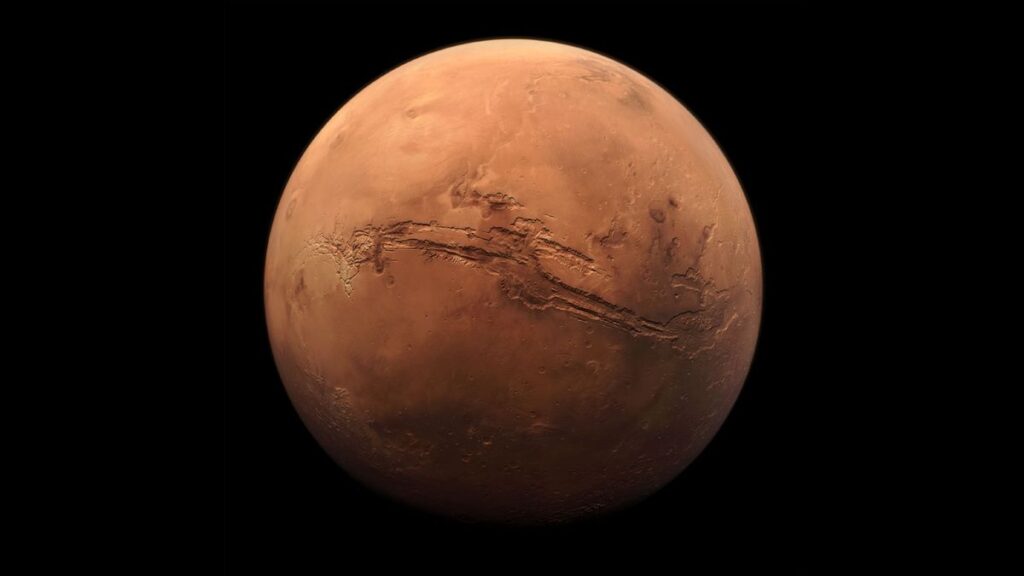Discover present-day life on Mars by devising low-cost instruments to perform on-the-spot probes. This approach could possibly usurp the need for Mars samples on Earth. Astrobiologists elaborate if that discovery would require an in-situ or sample return mission. Explore the ongoing debate on the possibility of life on Mars based on data from past missions.
While there is a lot of excitement around the idea of bringing Mars samples back to Earth for in-depth study, researchers are also exploring instruments and techniques that can be sent to Mars to investigate potential signs of life. The ultimate question is whether these lower-cost approaches can replace the need for direct samples from Mars.
“We should finally go and find out!” said Dirk Schulze-Makuch, a professor for astrobiology at the Technical University Berlin in Germany. Schulze-Makuch believes that if we want to discover present-day life on Mars, conducting on-the-spot probes with instruments on the Red Planet is the way to go. A sample return program, on the other hand, would work best for the discovery of prior life on Mars.
“However, in order to get unambiguous results we would have to put a suite of several of these methodologies together,” Schulze-Makuch told Space.com.
The Historical Challenge of Identifying Martian Life
Looking back at NASA’s Viking lander missions in the 1970s, researchers faced a challenging task of determining whether Mars could sustain life. While some of the biology experiments detected unexpected chemical activity in the Martian soil, there was no clear, definitive proof of living microorganisms near the landing sites.
According to Schulze-Makuch, the Viking approach was correct at that time, but the methodologies were not as advanced as they are now. There was a lack of comprehensive understanding about the Martian environment. Today, however, significant progress has been made in both areas.
Despite these advancements, the prospect of bringing back a sample that may contain Martian life presents considerable ethical and regulatory challenges. Carl Sagan’s famous quote, “extraordinary claims need extraordinary evidence,” still resonates with the ongoing debate around the discovery of life on Mars.
Redefining the Search for Life on Mars
To address the complex issue of identifying life on Mars, researchers are exploring a variety of approaches, ranging from on-the-spot probes to innovative instruments designed for deep-diving lander missions.
One potential mission gaining support is the Mars Life Explorer (MLE), which focuses on detecting signs of currently existing life on Mars. Endorsed by the most recent planetary science decadal survey, MLE offers a flexible instrument suite that can accommodate both existing and cutting-edge technologies.
In the interim, research teams are also developing specialized detectors and analyzers, such as the SOLID (“Signs Of LIfe Detector”) and the Microfluidic Life Analyzer (MILA), to screen for signs of life on Mars. These initiatives aim to leverage the latest advancements in technology to address the continuing question of life on the Red Planet.
Readying for Future Discoveries on Mars
While the debate about the existence of life on Mars persists, the scientific community continues to prepare for future missions and exploration. With ongoing advancements in technology and methodology, the prospect of solving the age-old mystery of life beyond Earth is inching closer to reality.
As Schulze-Makuch aptly summarizes, “The extraordinary claim is that Mars has no life and never had any life. We should finally go and find out!” Whether through innovative instruments or ambitious missions, the search for life on Mars remains a compelling and deeply captivating pursuit for scientists and space enthusiasts alike.
In revisiting the sentiment expressed by Marcel Proust, the true voyage of discovery lies not in seeking new landscapes, but in having new eyes to observe and understand the uncharted frontiers of our universe. Whether those frontiers lead us to the discovery of life on Mars or beyond, the enduring human quest for knowledge and exploration continues to push the boundaries of scientific understanding.


